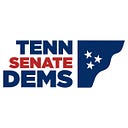‘Details matter’: Take time to get public school funding formula right, Dems say
Two years after Democrats called for $1.5 billion investment in students, Gov. Bill Lee releases new funding formula, $1 billion boost over two years
NASHVILLE — Tennessee’s legislature spends less on educating public school students than nearly every other state in the nation. That’s been true for years and, in 2020, Democratic lawmakers stood united behind an effort to invest an additional $1.5 billion in Tennessee’s public schools.
Two years later, Gov. Bill Lee has committed to increasing public education funding by $1 billion over the next two years, but it comes with a catch: legislation that completely rewrites the formula for funding schools.
“This plan makes an important down payment, but, when it comes to public school funding, the details matter,” said Sen. Raumesh Akbari, D-Memphis, who sits on the Senate Education Committee. “This law could affect an entire generation of students and teachers. With stakes this high, we cannot afford to get this wrong. I believe we should slow down, dig into the details and take our time. We didn’t get into this education funding deficit overnight and we are going to need more than a few weeks to set us on the right path forward.”
In the current 2021–2022 school year, K-12 public education will account for an estimated $10.4 billion of spending in Tennessee, 89 percent ($9.4 billion) of which is shared by the state and local governments. [Page 48]
In a press release, the administration described its new student-based formula as a $9 billion investment in K-12 public education — but that is nearly the exact amount state and local governments are spending currently.
Rearranging priorities
Sen. Jeff Yarbro, D-Nashville, questions how student funding levels were determined and says he’s skeptical whether the governor’s proposed spending formula is an accurate reflection of what students need to succeed.
“This feels like a formula that was written to split up the money the governor was willing to spend rather than a plan that considers what is actually needed to educate students,” Sen. Yarbro said. “If we’re going to devise a formula, it ought to push the legislature to make sure we’re doing adequate funding as opposed to starting with what we’re already spending.”
Current student funding levels are not great. Tennessee ranked 45th in nation for student funding, according to the 2021 Rankings and Estimates Report. [Page 34]
Some public education advocates, like Sen. Heidi Campbell, D-Nashville, worry the governor is using the school spending formula to quietly push his personal political preferences, such as private school vouchers, the state taking control over local charter school approvals, Wall Street hedge funds getting a cut of charter funding, and inserting religious ideology into education.
“The governor’s follow-the-child funding model by itself is not such a bad thing, the problem is all of the political priorities he’s built around it,” said Sen. Campbell, who described Lee’s agenda as a threat to the foundation of public education.
“There is an intention here to fundamentally change the way we are educating children in the state of Tennessee and that’s alarming,” Sen. Campbell said. “Follow the money — it’s about privatizing our public school system. Add on top of that, the governor announced he’s working with Hillsdale College, a private Christian university, to bring more charter schools into our state.”
Lawmakers short on time
The $9 billion legislation needs serious scrutiny, according to Rep. Vincent Dixie, chairman of the House Democratic Caucus, who said he is concerned about the aggressive timeline for passage announced by the governor.
“There are major issues here that need to be vetted and discussed in a measured, bipartisan manner and the governor is trying to rush this bill through in about 30 days,” Rep. Dixie said. “We want our students all across the state to have the best education possible and I don’t see how we can have substantive discussions on this in just a month.”
Sen. Akbari echoed that sentiment saying local school districts deserve a seat at the table now that the formula is finally public.
“For students in Memphis and Shelby County Schools, that means we need a meaningful opportunity to receive feedback from our local education experts, district officials, and teachers,” Sen. Akbari said. “The right funding formula strengthens our students and schools and gives everyone confidence that we are moving forward together.”
